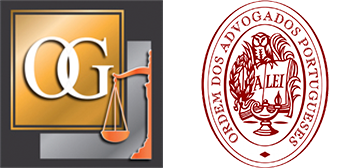
AGRICULTURE & LIVESTOCK
Our interdisciplinary teams are increasingly concerned with the multiple innovations and technical and technological demands that these sectors present today, and to this end, we provide legal advice adapted to their new reality, supporting our national and international Clients on acquisitions, national investments and foreign companies, joint ventures, public offers, structural funds and financing, cooperation agreements, international trade, technology licensing and sector support programs, constitution, merger and division of agricultural and livestock companies, purchase and sale of rustic assets, support to cooperativism, rural property management, rural leasing, agricultural insurance, taxation, national or European agricultural financing and agritourism, subsidies that come from the CAP.
On the other hand, legal issues arise regarding hiring workers and managing labor relations and taxation issues, for which we provide full legal support.
We have a multidisciplinary team that provides assistance in litigation and conflict resolution.
MAIN AREAS OF INTERVENTION
- Incorporation, Merger and Demerger of Agricultural Companies
- Agricultural Partnership
- Incorporation, Merger and Demerger of Agricultural Co-operatives
- Buying and Selling Rural Property
- Judicial Procedures for Exercising Rights of Preference, Possession, Usucaption and Servitude
- Bringing Civil Liability Actions for Environmental Damage
List of services
STATE BUDGET 2024
Extraordinary support regime for costs incurred in agricultural production
For the purposes of determining taxable profit, for the tax period beginning on or after January 1, 2024, of resident IRC taxpayers who carry out, as their main activity, an activity of a commercial, industrial or agricultural nature, of IRC of non-residents with a permanent establishment and of IRS taxpayers with organized accounting (category B) can be increased by 40%
expenses and losses incurred or borne by the taxpayer relating to the acquisition of the following goods, when used within the scope of agricultural production activities:
a) Organic and mineral fertilisers, fertilizers and amendments;
b) Flours, cereals and seeds, including mixtures, residues and waste from food industries, and any other products suitable for feeding livestock, poultry and other animals, referenced in the Codex
Alimentarius, regardless of breed and functionality in life, intended for human consumption;
c) Water for irrigation;
d) Glass bottles.
The increase referred to in the previous paragraph which, as it exceeds the limit set out in paragraph 1 of article 92 of the IRC Code, cannot be enjoyed in the first tax period beginning on or after January 1, 2024, may be considered for the purposes of calculating taxable profit up to the tenth following tax period.
The tax benefit provided for in this article is subject to de minimis aid rules.
Tax incentive within the scope of
common agricultural policy
YOU 2024
1 – Without prejudice to IRS taxation in general terms, taxpayers who receive subsidies or grants under the PAC in 2024, referring to the previous year, may opt for the respective taxation in that year.
2 – For the purposes of the provisions of the previous paragraph, whenever the payment of subsidies or grants occurs after the period defined in paragraph 1 of article 60 of the IRS Code, taxpayers may submit a replacement declaration in accordance with paragraphs 3 et seq. of article 59 of the CPPT.
Legal regime for fishing using trawling gear
Ordinance No. 411/2023, of December 5th
Decree-Law No. 73/2020, of September 23, which approves the legal regime for the exercise of the professional activity of maritime commercial fishing and the authorization, registration and licensing of ships or vessels used in said activity, determines, in paragraph 1 of article 19, the authorized fishing methods and gears and, in paragraph 3 of the same article, establishes that the provisions regulating the characteristics of the gears and conditions for carrying out fishing by any of those methods are approved by ordinance of the member of the Government responsible for the sea area.
This ordinance regulates the method of fishing using trawling gear, complying with the aforementioned decree-law.
In Portugal, in oceanic and inland maritime waters, the only trawling art used is the Xávega art, as part of artisanal fishing, with important economic and social relevance in some coastal communities, especially on the north and central west coast.
For this reason, through Regulation (EU) 2019/1241, of the European Parliament and of the Council, of 20 June 2019, on the conservation of fisheries resources and the protection of marine ecosystems through technical measures, Portugal was allowed to establish an exceptional regime in terms of minimum reference sizes for the conservation of mackerel caught with this art, which involves monitoring the fishery, which includes monitoring it, ensuring the effective participation of professionals, also with a view to collecting data for maintenance of this derogation. It is therefore important to maintain monitoring of the fishery and collect information that allows assessing the adequacy of the measures in force and justifying the existing derogation regime.
This ordinance establishes the regime for fishing using trawling gear, defined in paragraph e) of paragraph 1 of article 19 of Decree-Law no. 73/2020, of September 23, including a system participated in the management and monitoring of fishing with Xávega gear.
Fishing using trawl gear can only be carried out using xávega gear (FAO Code SB 02.1).
1 - Xávega art can only operate in the area of jurisdiction of the Port Authority of reference for the respective vessel, and may also operate in the area of neighboring captaincies where this fishing is traditionally carried out, provided that it has prior authorization from the respective maritime authority.
2 - Vessel reports provide prior knowledge of the xávegas' locations of activity to the competent entities in the respective areas of the maritime public domain.
3 - The places where each Xávega art is carried out are those where there is a tradition of carrying out this activity, being demarcated by the maritime authority and changes in location being subject to authorization from the same authority.
The exercise of fishing with Xávega gear is not permitted during the bathing season on concession beaches, during the respective opening hours, except, with prior authorization to be requested from the General Directorate of Natural Resources, Security and Maritime Services (DGRM) they may, at exceptional title and for reasons of ethnographic display, demonstrations of Xávega art will be carried out during the period referred to in the previous paragraph, with the sale of captured fish being prohibited, which can only be intended for the promoters' own consumption or delivery to public entities or private social solidarity institutions.
No new licenses are granted for fishing with xávega gear.
Licenses for fishing with Xávega gear are canceled in the following cases:
a) Failure to carry out the activity, without justification, in the previous year;
b) Decommissioning of the vessel upon registration in the fishing fleet, except when the vessel is given as consideration for the construction of a new vessel and exclusively for reasons linked to increased safety.
contact us

Registo 11/15





